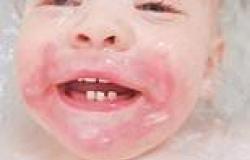A lack of sleep could permanently damage DNA and increase the risk of cancer, scientists believe.
Sleep deprivation can also reduce DNA's ability to repair itself, possibly leading to genetic diseases, findings from a study suggest.
Researchers believe it is the first study of its kind to look into the effects of sleep deprivation on genes in young adults.
The research focused on doctors, known for having to adjust their sleep patterns due to night shift work, and the scientists do not know why a lack of sleep damages DNA.
The recommended amount of sleep is generally seven hours a night, but figures suggest adults routinely miss out on an hour or two.

A lack of sleep could damage DNA and increase the risk of cancer, scientists at the University of Hong Kong believe on the back of a study (stock image)
The study at The University of Hong Kong looked at 49 working doctors from two local hospitals, 24 of whom had to work overnight on-site calls.
When a doctor receives such a call – on average they get five to six per month – they must work from late afternoon to early morning the next day.
In the study the participants got between two and four hours of sleep during calls, with three getting as little as one hour's shut-eye.
The remaining 25 doctors were not expected to work these hours.
After three days of a good sleep, researchers took blood samples from all doctors.
Then, blood samples were taken the morning after a night shift when doctors were sleep deprived.
The findings, published in the journal Anaesthesia, showed doctors who worked night shifts had 30 per cent more breaks in their DNA compared to those who did not.
What's more, the DNA damage increased a further 25 per cent after a night of sleep deprivation.
Insomnia means you regularly have problems sleeping. It usually gets better by changing your sleeping habits.
You have insomnia if you regularly: find it hard to go to sleep, wake up several times during the night, lie awake at night, wake up early and can't go back to sleep, still feel tired after waking up
Everyone needs different amounts of sleep. On average, adults need 7 to 9 hours, while children need 9 to 13 hours.
You probably don't get enough sleep if you're constantly tired during the day.
The most common causes of insomnia are:







